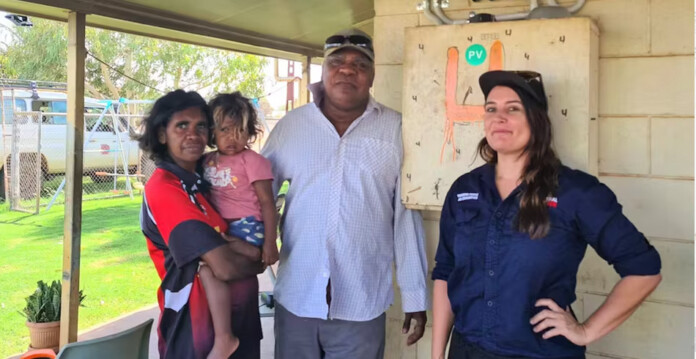
A first-of-its-kind First Nations-led research project has been launched to improve energy security and consumer protections for customers accessing electricity services through pre-paid metering arrangements.
Pre-paid metering is mandated in many regional and remote Aboriginal communities and is associated with a high rate of disconnections and energy insecurity. Consumer protections for those customers vary across states and territories.
This project will help uncover the experiences of First Nations communities and people supplied by prepayment meters and find ways to ensure those households in the Northern Territory, Queensland, South Australia and Western Australia receive the same critical consumer protections as people on post-paid arrangements.
Funded through an Energy Consumers Australia collaboration grant, Original Power, in partnership with researchers at Western Sydney University, will work with locally based First Nations researchers to lead, design and conduct community consultations in the Northern Territory, Queensland, South Australia and Western Australia to improve energy sector understanding of the lived experience of First Nations households and communities using pre-payment arrangements for electricity.
Related article: First Nations people must be at the forefront of Australia’s renewable energy revolution
Tangentyere Council, representing the Alice Springs town camps, will be involved in the project as one of the local First Nations researcher partners.
“It’s important that our mob understand how to manage power and gain information on pre-payment meters. We need to make this information available for everybody using pre-payment so our communities can have fairer access to electricity services,” Tangentyere Council senior Indigenous researcher Vanessa Napaltjari Davis said.
Original Power will then collaborate directly with government and regulatory agencies including retailers to analyse and share data and to identify and implement solutions that will help communities.
Retailers and networks who service First Nations communities and pre-payment customers in the Northern Territory, Queensland, South Australia and Western Australia are encouraged to contact Original Power to take part in the project.
“Original Power is proud to work alongside Indigenous research partners across the continent on this major national study, shining a light on the underreported experience of First Nations energy customers who access electricity through pre-payment,” Original Power executive director Lauren Mellor said.
“First Nations pre-paid meter customers experience some of the highest rates of energy insecurity of any population in the world, with frequent and extended disconnections caused by a lack of affordable power and exacerbated by the automated disconnections inherent to pre-paid meters. These experiences significantly impact the lives of First Nations families and communities, undermining social and economic wellbeing.
“As this study kicks off in the Northern Territory and expands to other pre-paid meter regions across Australia, we look forward to working collaboratively with communities, service providers, retailers and regulators to find ways to improve energy security for all First Nations energy customers.”
Chantelle Johns, a Marlinja-based researcher said, “It’s important that a national study captures all of the issues, questions and concerns regarding prepayment meters and to gather real data on how we are impacted to help advocate for change in our communities so that pre-payment customers can achieve real energy security.”
Dr Thomas Longden from the Urban Transformations Research Centre (UTRC) at Western Sydney University said: “The impacts of regular disconnection from electricity in remote communities are often a blind spot for the Australian energy community.”
A previous study in Nature Energy, co-authored by Dr Longden and funded by Energy Consumers Australia, found that 91% of households experienced a disconnection from electricity in a year and 74% were disconnected more than 10 times.
Related article: New First Nations engagement guide for renewables industry
“While we know that energy insecurity is common, we need to better understand how we could improve energy affordability, access and reliability for pre-paid meter customers.
“Disconnections are common and increase during days of extreme heat and cold. All power is lost to the household so even the lights go off, which makes the house dangerous to be in as they get very dark. This also means that there is no heating or cooling. The fridge stops working and this could lead to food going off and essential medicines being spoilt.
“That places people at risk of critical health events, for example, diabetics need insulin, but it spoils when it is not stored in an operable fridge. There’s also an extremely high rate of kidney disease, which makes people very vulnerable to extreme heat.”






